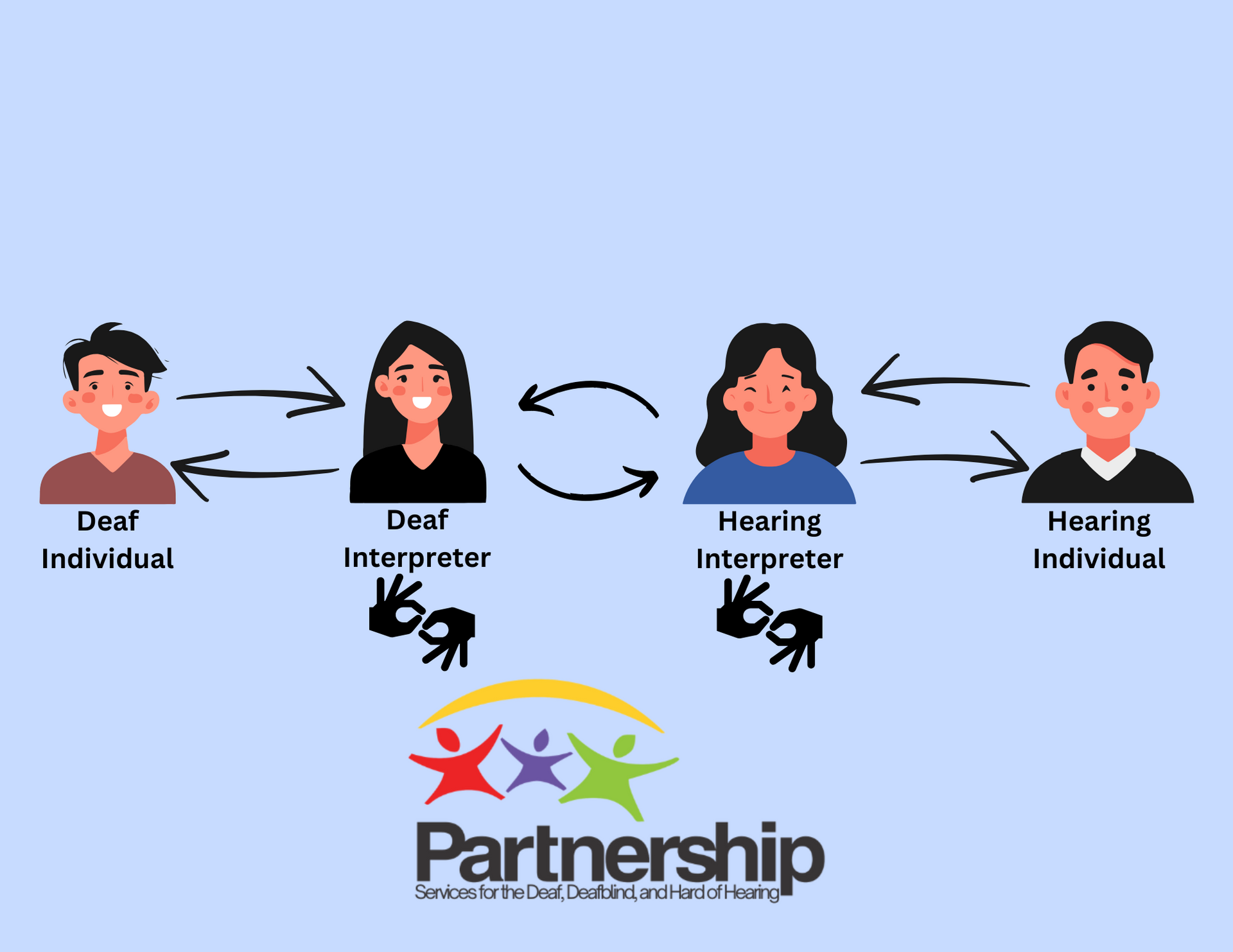Understanding Deaf Interpreters
Deaf Interpreters (DIs) and Certified Deaf Interpreters (CDIs) are crucial for accurately interpreting atypical or non-standard sign languages. They bridge communication gaps, ensuring Deaf individuals have equal access to information and services, which enhances inclusivity and understanding.

What is the Importance of DI/CDI
01
Deaf-Blind Individuals
Using tactile signing and other specialized communication methods to facilitate understanding.
02
Atypicial Language
Deaf Interpreting is essential for individuals with atypical language, minimal language skills, or home signs, as it ensures accurate communication, provides cultural context, enhances accessibility, supports additional needs, and bridges communication gaps effectively.
03
Legal Settings
Deaf Interpreters are essential in legal settings for ensuring accurate communication, providing cultural and contextual understanding, enhancing accessibility and participation, supporting effective legal defense and advocacy, bridging communication gaps, enhancing legal outcomes, and creating a safe and trustworthy environment. Their role is crucial for maintaining fairness and equity in the legal process for Deaf individuals.
Role of a Deaf Interpreter

- Facilitating Communication: Deaf Interpreters work alongside hearing interpreters to ensure that the message is conveyed accurately and effectively between Deaf and hearing individuals.
- Cultural Mediation: They provide cultural context and understanding, bridging any cultural gaps that may exist between Deaf and hearing cultures.
- Working with Diverse Language Needs: Deaf Interpreters are skilled in a variety of sign languages and communication modes, including non-standard sign languages, home signs, and gestures, making them essential for individuals with unique linguistic needs.
- Assisting in Complex Situations: In settings such as legal, medical, or mental health environments, Deaf Interpreters can offer a higher level of accuracy and understanding, ensuring that Deaf individuals fully comprehend the information being communicated.
- Supporting Additional Disabilities: They are trained to work with Deaf individuals who may have additional disabilities, adapting their interpreting methods to meet these specific needs.
- Education and Advocacy: Deaf Interpreters often educate others about Deaf culture and the importance of using qualified interpreters, advocating for the rights and needs of Deaf individuals in various settings.


